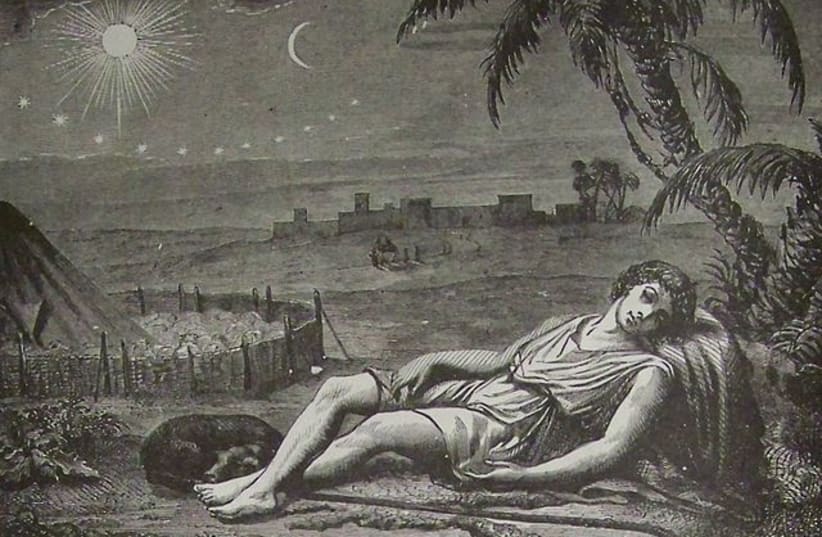We are told that Jacob “saw that there was shever in Egypt” (Gen. 42:1). What is “shever”?
Although it is normally translated as grain or provisions, in the Midrash Rabbi Yohanan ties it to the word “sever” (Gen. R. 91:1), meaning “hope.”
The Midrash sets up an opposition between shever and sever: there was famine and there was plenty. Joseph was sold as a servant, Joseph became the ruler. The Children of Israel became slaves, the Children of Israel were freed. Throughout the Joseph story the interplay of opposites is a theme.
Hizkuni, followed by S.R. Hirsch, ties Jacob “seeing” that there were provisions in Egypt (for surely he did not see, he heard) to the verse later at Sinai that the Israelites “saw the voices.” This kind of spiritual synesthesia locates the conflation of qualities in Jacob himself.
Continuing in Joseph – he is the favored child (by his father), he is the hated child (by his brothers). He is adorned with a coat and stripped of his coat. He descends to the pit, ascends to Potiphar’s house, descends to jail and ascends to Pharaoh’s palace. Joseph favors his younger brother, Benjamin, and accuses his younger brother. He knows his brothers and acts as though he does not. He reveals himself in love, and the brothers react in fear. The losing and finding, emptiness and fullness, desolation and redemption, all mark the pathos of the Joseph story.
Even the dreams of Joseph and Pharaoh embody this oppositional movement. In Joseph’s dreams the older serve the younger. In Pharaoh’s dreams the weak cows consume the strong ones. There is an intertwining of strength and weakness, age and youth, dark and light.
This is yet another reason why the Joseph story is read on Hanukkah. Hanukkah is a tale of light and darkness. The Temple is desecrated, and the Temple is restored. The Jews assimilate and the Jews remain faithful. The few prevail over the many – or as the Al Hanissim prayer puts it, “the weak over the strong.” The days grow shorter and darker, and the hanukkiah increases candles and grows brighter. Shever and sever – symbol of famine and symbol of hope.
Why do we celebrate Hanukkah on the 25th of Kislev? In the Book of Maccabees (I Macc. 4) we are told that the gentiles profaned the altar on the 25th of Kislev, and that is why that day was chosen for the rededication. This is reminiscent of the tradition that the Messiah was born on Tisha Be’av, the day the Temple was destroyed.
Judaism is not binary – it does not teach that there are forces of light and darkness that are wholly separate and distinct. Rather, there is an interdependence and an intertwining. On the day the evil inclination was captured, the rabbis teach, not an egg was laid nor a house built (Yoma 69b). As Isaiah puts it, “I form light and create darkness, make peace and crate evil – I the Lord do all these things” (Is. 45:7). The world exists along the current of both purity and stain, goodness and sin.
No biblical character is without flaws, no act without repercussions, no statement single in its implications. The Torah is a sustained argument against simplemindedness and single meanings. Jacob is named Israel and is nonetheless the patriarch responsible for taking his family to Egypt; Joseph is the savior of his people who names his children to represent forgetfulness of his old home and prosperity in the new, and still exacts a promise to have his remains brought back to the home he has never truly forgotten.
We celebrate Hanukkah, which is a military victory and yet the motto of the holiday is “Not by might, nor by power but by My spirit, says the Lord” (Zechariah 4:6). We should not be surprised. Everything contains something of its opposite, all things interpenetrate and each flicker of the candle is a dance against the darkness.
The writer is Max Webb senior rabbi of Sinai Temple in Los Angeles and the author of David: The Divided Heart. On Twitter @rabbiwolpe.
